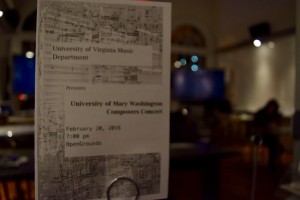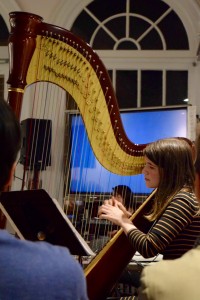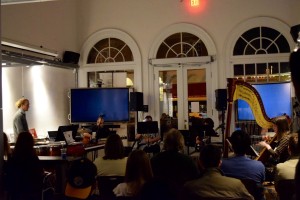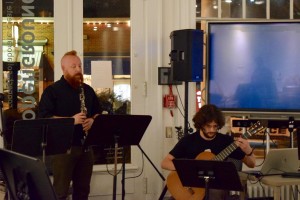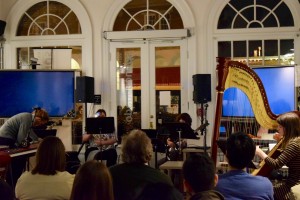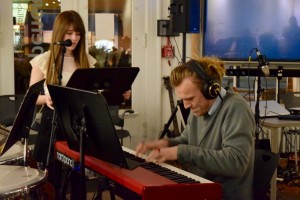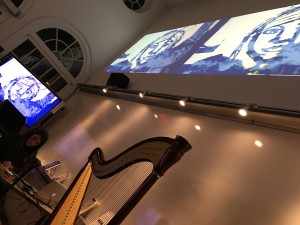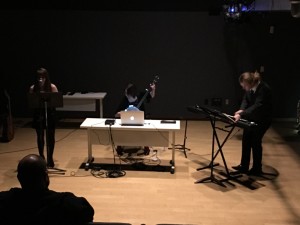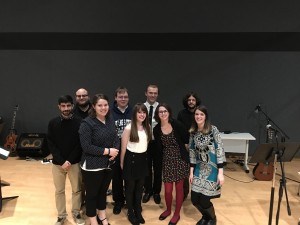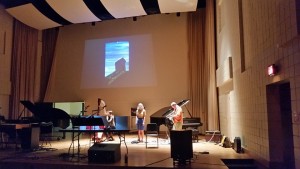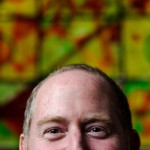Mark Snyder, Assistant Professor of Music, released The Invalid’s Sonnet on Friday, Feb. 19. The new recording features soprano Paige Naylor (UMW Music & Psychology 2014), harpist Becky Brown (UMW Music & Computer Science 2015) and guitarist John White (UMW Music 2013).
The third record from the Virginia-based multimedia composer offers his most potent and emotional music yet. The album’s centerpiece, a four-movement song cycle titled Facets of Love, avoids the traditional art song cliche by following the lover’s spiral from joy to ruin. The poems written by Jeanine Casler take traditional forms, yet their stories are evocative and painful, traversing from love’s exuberant awakenings to its grittiest atrocities, and withering into its most isolated despondency. The anticipation and excitement of the prelude show love at its birth and its butterflies, with waves of sparkling electronics mirroring new affection as it grows and deepens. The soprano builds off this rhythmic trust into the second movement (Our House on the Hill); gentle at first, her voice grows strong and unafraid as the ensemble bolsters her passion into something alive, untethered, and completely joyous.
An uneasy stillness opens the third movement (The Invalid’s Sonnet), punctuated by the haunting echoes that shadow the soprano. The singer’s anger builds until it erupts into self-destructive chaos, with the thundering ensemble giving weight to her pained declarations of personal surrender. A chorus of her own wordless voice drifts into the emptiness left by anger’s end as the fourth movement (Nostalgia) begins; heavy piano chords interrupt the void in the slowest, strained heartbeat. The soprano sings high enough to break, and pure enough to wring her own regretful tears, had she any left to give. Hollow and barely human, the end of the song cycle resonates loss as it echoes into silence.
The abject emptiness felt at the end of Facets of Love grants a certain silence to Calena, a eulogy for a friend who died too young of NUT midline carcinoma, an untreatable form of cancer. Still synths expose a low, unstable melody, combining in dialogue until both give way to a triumphant yet tragic crescendo, her name echoing in the background. Where Nostalgia describes a pure, abstract loss, Calena spans all the emotions that come with remembrance; warm memories organically coexist with new sorrows.
Qwee breathes a starry whisper into the album’s end, at first sounding like a meditation on emerging from solitude. The work shimmers as it builds in both volume and speed, from just slow harp and soft singing to an organ-esque accordion bolstering a whirling cloud of voices. It suggests slowly built confidence after making a well-needed change, every new beat a quicker step on some untraveled path. “I haven’t completely grasped everything about Qwee,” Snyder says. “But it was definitely a beacon.”
The Invalid’s Sonnet will be released on Feb. 19 through all digital retailers and streaming services; physical CDs can also be purchased online. See marksnyder.org for more information on listening, purchasing, or attending a show.
